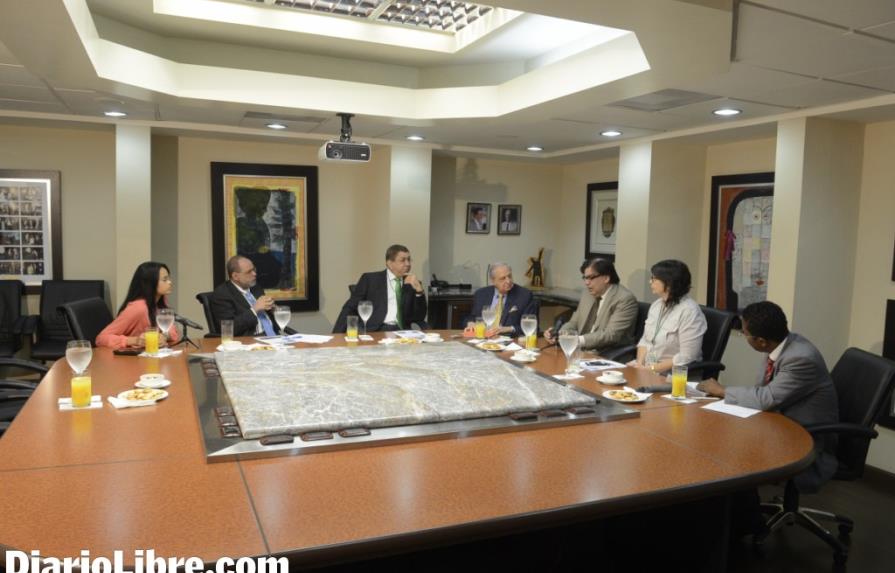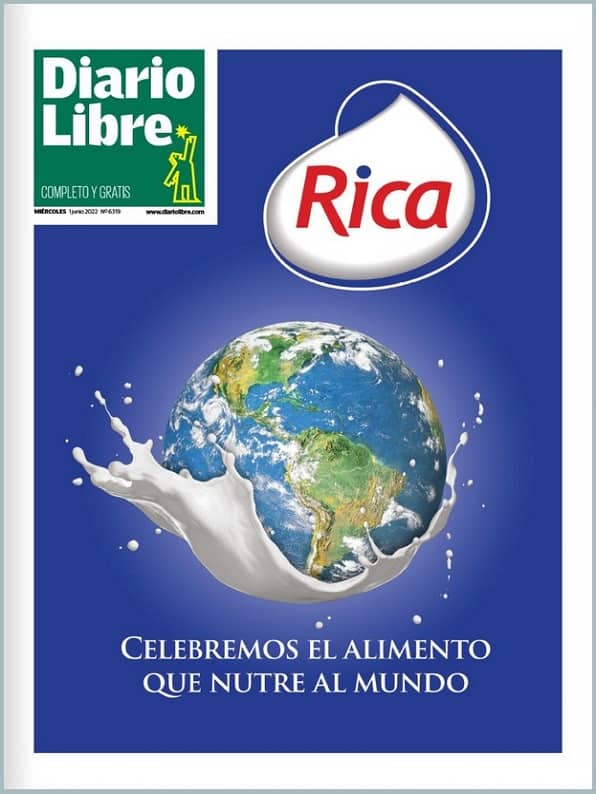Experts feel entrepreneurship is in vogue because of unemployment rate and the financial crisis
Some 54.4% of the workers belong to the Mipymes sector

SANTO DOMINGO. Speaking about entrepreneurship seems to be in vogue. Last Wednesday, 12 November, they celebrated the Day of the Entrepreneur, and over the last few days they have held fairs in this sector. Why all the interest?
The answer is given by the director of Entrepreneurship of the Ministry of Industry and Commerce, José Checo Brito. "Entrepreneurship has come into vogue because of 2 things lately: first because of the unemployment rate, that we have not only here but in all parts of the world, and second because of the recent financial crisis," he says.
He adds that the financial crisis forced them to "open their eyes" in order to understand that "those that were creating value are not the big companies."
A study presented last July by the Ministry of Economy indicates that between March 2013 and March 2014 the open unemployment rate in the country went from 7% to 6.8% of the population that is economically active, and the expanded unemployment went from 15% to 14.9%.
Businessmen Luis Sanchez Noble, the president of the Innovati foundation, defines the entrepreneur as that person that creates a product or service that does not exist at that moment, or produces an innovation which gives new value to a product.
Checo and Sanchez took part in the Dialogo Libre sponsored by this newspaper, which is coordinated by its director Adriana Miguel Tejada. Also taking part in the conversations where the deputy director of the Diario Libre, Ines Aizpun, the Editor-in-chief, Nelson Rodriguez; the writer for the Economic section, Amilcar Nivar and this reporter.
Sanchez Noble, who throughout his life has been interested in the issue of innovation and entrepreneurship, and has had experiences in the issue during visits to other countries, said that "the guys have to be taught to look around, to see what things they don't like and what they like that should be different." In that way, he says, the idea of what they can do, of what they can create will be borne. "I believe that we are walking forward, I am not negative regarding the country," he pointed out.
Last week, the Deputy Minister for the Promotion of the Small and Medium Business, Ignacio Mendez, stressed at the Presidential Palace that 54.4% of the working population of the country belongs to the micro, small and medium companies (Mipymes). He also said that this sector contributed 38% of the Gross Domestic Product (GDP).
In global terms, he cited the Fondomicro survey that numbered 791,324 Mipymes in the country, representing 98% of the Dominican business fabric.
"I believe that there are many people here in the country that have seen the potential of entrepreneurism, that have realized that we have to innovate if we want not only to think of our market, because anything that one does different can have the whole world for clients, since we no longer limit ourselves to the Dominican Republic," says Sanchez.
As an example of the participation of the state in the promotion of entrepreneurship, there is the Deputy Minister for the Promotion of the Mipymes of the Ministry of Industry and Commerce, which includes the Directorate of Entrepreneurship and the Directorate of Support Services to the Mipymes.
"Dominicans are entrepreneurs, they always have been, so what we want to create is the facility for this to be easier," says the director of Entrepreneurship.
The official recalls the case of Bon Ice Cream, a business of local origin which he feels was born with an entrepreneurial gene and today has many branches.
"The entrepreneur says what is not being done or what is being done badly in the marketplace right now, where the opportunities are, and how I can convert this into a business, and he has the vision from the start of converting himself into the biggest that he can be with the business of scaling," indicates Checo. He feels that this is what makes the difference from a businessman.
They feel the educational system of the country kills creativity
The president of Empresas Unidas, Luis Sanchez Noble, criticized the fact that the Dominican educational system does not have a formal culture of promoting entrepreneurship.
"The great majority of our professors are paid by the hour (...) And how do you convince a professor that besides his class time he modifies the system that he has, and that is pre-established for teaching, and you give the student some ideas so we can begin to start things, to search for ideas such as how to make things differently in his house and in the reports in his class?", He complains.
He understands that from the secondary school they should begin to provide incentives, nevertheless the local educational system, kills creativity of the students from the time they are small," beginning with the rigidity of the school desk.
"I have met with people who have been given scholarships to see Taiwan, who have been taken to Singapore and have realized that what they say about these places breeding businessmen; no, it is that they are educated this way," he says.
Given the lack of entrepreneurship in the classroom, the government plans to have the program "Learn to Launch" taken to the schools that are operating under the system of the extended school day.
"We don't want that the young people to be thinking only about "I want to be a millionaire"; no, that is not the idea, the idea is that I can change the world, I can do things differently," the director of Entrepreneurship at the Ministry of Industry and Commerce, José Checo Brito, says.
The answer is given by the director of Entrepreneurship of the Ministry of Industry and Commerce, José Checo Brito. "Entrepreneurship has come into vogue because of 2 things lately: first because of the unemployment rate, that we have not only here but in all parts of the world, and second because of the recent financial crisis," he says.
He adds that the financial crisis forced them to "open their eyes" in order to understand that "those that were creating value are not the big companies."
A study presented last July by the Ministry of Economy indicates that between March 2013 and March 2014 the open unemployment rate in the country went from 7% to 6.8% of the population that is economically active, and the expanded unemployment went from 15% to 14.9%.
Businessmen Luis Sanchez Noble, the president of the Innovati foundation, defines the entrepreneur as that person that creates a product or service that does not exist at that moment, or produces an innovation which gives new value to a product.
Checo and Sanchez took part in the Dialogo Libre sponsored by this newspaper, which is coordinated by its director Adriana Miguel Tejada. Also taking part in the conversations where the deputy director of the Diario Libre, Ines Aizpun, the Editor-in-chief, Nelson Rodriguez; the writer for the Economic section, Amilcar Nivar and this reporter.
Sanchez Noble, who throughout his life has been interested in the issue of innovation and entrepreneurship, and has had experiences in the issue during visits to other countries, said that "the guys have to be taught to look around, to see what things they don't like and what they like that should be different." In that way, he says, the idea of what they can do, of what they can create will be borne. "I believe that we are walking forward, I am not negative regarding the country," he pointed out.
Last week, the Deputy Minister for the Promotion of the Small and Medium Business, Ignacio Mendez, stressed at the Presidential Palace that 54.4% of the working population of the country belongs to the micro, small and medium companies (Mipymes). He also said that this sector contributed 38% of the Gross Domestic Product (GDP).
In global terms, he cited the Fondomicro survey that numbered 791,324 Mipymes in the country, representing 98% of the Dominican business fabric.
"I believe that there are many people here in the country that have seen the potential of entrepreneurism, that have realized that we have to innovate if we want not only to think of our market, because anything that one does different can have the whole world for clients, since we no longer limit ourselves to the Dominican Republic," says Sanchez.
As an example of the participation of the state in the promotion of entrepreneurship, there is the Deputy Minister for the Promotion of the Mipymes of the Ministry of Industry and Commerce, which includes the Directorate of Entrepreneurship and the Directorate of Support Services to the Mipymes.
"Dominicans are entrepreneurs, they always have been, so what we want to create is the facility for this to be easier," says the director of Entrepreneurship.
The official recalls the case of Bon Ice Cream, a business of local origin which he feels was born with an entrepreneurial gene and today has many branches.
"The entrepreneur says what is not being done or what is being done badly in the marketplace right now, where the opportunities are, and how I can convert this into a business, and he has the vision from the start of converting himself into the biggest that he can be with the business of scaling," indicates Checo. He feels that this is what makes the difference from a businessman.
They feel the educational system of the country kills creativity
The president of Empresas Unidas, Luis Sanchez Noble, criticized the fact that the Dominican educational system does not have a formal culture of promoting entrepreneurship.
"The great majority of our professors are paid by the hour (...) And how do you convince a professor that besides his class time he modifies the system that he has, and that is pre-established for teaching, and you give the student some ideas so we can begin to start things, to search for ideas such as how to make things differently in his house and in the reports in his class?", He complains.
He understands that from the secondary school they should begin to provide incentives, nevertheless the local educational system, kills creativity of the students from the time they are small," beginning with the rigidity of the school desk.
"I have met with people who have been given scholarships to see Taiwan, who have been taken to Singapore and have realized that what they say about these places breeding businessmen; no, it is that they are educated this way," he says.
Given the lack of entrepreneurship in the classroom, the government plans to have the program "Learn to Launch" taken to the schools that are operating under the system of the extended school day.
"We don't want that the young people to be thinking only about "I want to be a millionaire"; no, that is not the idea, the idea is that I can change the world, I can do things differently," the director of Entrepreneurship at the Ministry of Industry and Commerce, José Checo Brito, says.


 Mariela Mejía
Mariela Mejía
 Mariela Mejía
Mariela Mejía